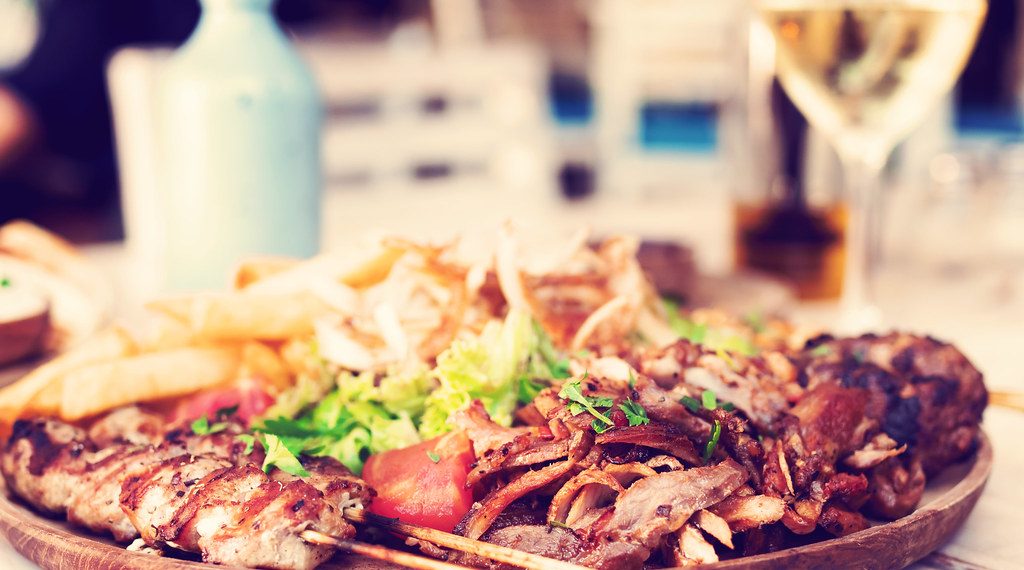There’s something undeniably satisfying about grilling—whether it’s a casual weekend barbecue or a summer gathering with friends. However, grilling can sometimes be associated with unhealthy choices like fatty meats and sugary sauces. The good news is that with a few smart techniques, you can make your grilling sessions healthier without sacrificing flavor. Here are ten essential tips for making your next barbecue both tasty and nutritious.
1. Choose Lean Proteins
One of the easiest ways to make your grilling healthier is by choosing lean proteins. Skip fatty cuts like ribeye or sausage and opt for leaner options such as skinless chicken breasts, turkey burgers, pork tenderloin, or fish like salmon or tuna. These proteins are lower in unhealthy fats and rich in nutrients that support your overall health.
Vegetarian options like tofu, tempeh, or portobello mushrooms also work wonderfully on the grill, providing both protein and fiber. Tofu and tempeh absorb marinades well, so you can pack them with flavor before cooking.
2. Marinate for Flavor and Health
Marinating your meat, fish, or vegetables is an excellent way to infuse them with flavor while reducing the formation of potentially harmful compounds. Grilling at high heat can cause the formation of heterocyclic amines (HCAs) and polycyclic aromatic hydrocarbons (PAHs), both of which are linked to cancer. Using a marinade made with acidic ingredients like vinegar, lemon juice, or yogurt can help reduce the formation of these compounds.
Herbs and spices like rosemary, thyme, garlic, and turmeric also have antioxidants that can minimize harmful compounds. Plus, marinades add a rich layer of flavor without needing high-sugar sauces or extra fat.
3. Load Up on Vegetables
Vegetables are a fantastic addition to any barbecue, and grilling enhances their natural flavors. Bell peppers, zucchini, eggplant, mushrooms, onions, and even corn on the cob become sweet and slightly smoky when grilled. Not only are they delicious, but they also add essential vitamins, minerals, and fiber to your meal.
For extra convenience, create vegetable skewers with a mix of your favorites. Brushing them lightly with olive oil and seasoning with herbs can make them an irresistible addition to your grill.
4. Avoid Processed Meats
Processed meats like hot dogs and sausages may be barbecue staples, but they are often high in saturated fats, sodium, and preservatives. These unhealthy ingredients have been linked to an increased risk of chronic diseases such as heart disease and cancer. Instead of processed meats, choose fresh cuts or plant-based proteins for a healthier alternative.
If you crave the taste of sausage, consider grilling chicken or turkey sausages with fewer additives, or even experimenting with homemade veggie sausages made from beans, vegetables, and spices.
5. Grill Smart to Avoid Charring
While that charred, smoky flavor can be appealing, consuming charred food can be unhealthy due to the formation of carcinogenic compounds. To avoid over-charring, grill over medium heat rather than high heat, and turn your food frequently to cook it evenly.
You can also reduce flare-ups, which lead to charring, by trimming excess fat from meats before grilling. Another way to reduce direct contact with flames is to use aluminum foil or grill mats, which can help prevent burning while still giving you those beautiful grill marks.
6. Use Healthy Oils Sparingly
Using oil can help prevent sticking and add flavor, but it’s essential to choose healthy oils and use them sparingly. Olive oil, avocado oil, and canola oil are all good choices that provide healthy fats. Rather than drenching your food, use a brush or oil spray to lightly coat vegetables, fish, or other grill items.
By controlling the amount of oil, you can keep your grilled foods from becoming unnecessarily high in fat while still enjoying the added moisture and flavor that oil provides.
7. Incorporate Whole Grains
Grilling isn’t just about the proteins and veggies—the sides you choose also matter. Instead of the usual white bread buns, opt for whole grain options. Whole grain buns or wraps provide more fiber, vitamins, and minerals than their refined counterparts, which helps keep you full and supports digestive health.
You could also consider serving grilled proteins over a bed of whole grains like quinoa, brown rice, or farro. These grains add texture and are a nutritious base that complements the smoky flavors of grilled foods.
8. Make Your Own Healthy Sauces and Rubs
Store-bought barbecue sauces and rubs are often packed with sugar, salt, and artificial ingredients. By making your own, you can control the amount of sugar and sodium while incorporating healthier ingredients.
Try making a simple rub with paprika, garlic powder, onion powder, black pepper, and a touch of cayenne for heat. For a healthy sauce, blend tomatoes, vinegar, a little honey or maple syrup, and some smoked paprika for that classic barbecue flavor without all the added sugars and preservatives.
9. Keep Portions in Check
Grilled food can be so delicious that it’s easy to overeat, but keeping portions in check is important for maintaining a balanced diet. When grilling meat, aim for portions that are about the size of your palm. Balance your plate with plenty of grilled vegetables and a serving of whole grains to create a meal that is filling and nutritious.
Using smaller plates can also help you keep portions in control, and focusing on the variety of foods available—such as colorful vegetables and healthy grains—can make your meal more satisfying without overloading on protein or calories.
10. End with a Healthy Dessert
Grilling isn’t just for savory dishes—it can also be used to make healthy desserts. Grilled fruit is a naturally sweet and satisfying way to end a meal. Pineapple, peaches, bananas, and even watermelon develop a caramelized sweetness when grilled.
For a simple dessert, grill peach halves and drizzle with a little honey or sprinkle with cinnamon. You could also skewer fruits like strawberries, pineapple chunks, and melon for a colorful and nutritious dessert kebab. These options are lower in calories compared to cakes or cookies, and they provide vitamins, fiber, and natural sweetness.
Healthy Grilling in a Nutshell
Grilling can be a healthy way to prepare food if done mindfully. By choosing lean proteins, loading up on vegetables, using homemade marinades and rubs, and avoiding processed meats, you can enjoy a nutritious and delicious barbecue. The key to healthier grilling is balance—incorporating a variety of colorful vegetables, keeping portions reasonable, and using healthier cooking techniques can help you enjoy your favorite grilled foods guilt-free. Whether you’re a seasoned grill master or just starting out, these tips will help you make your next barbecue a health-conscious success.








